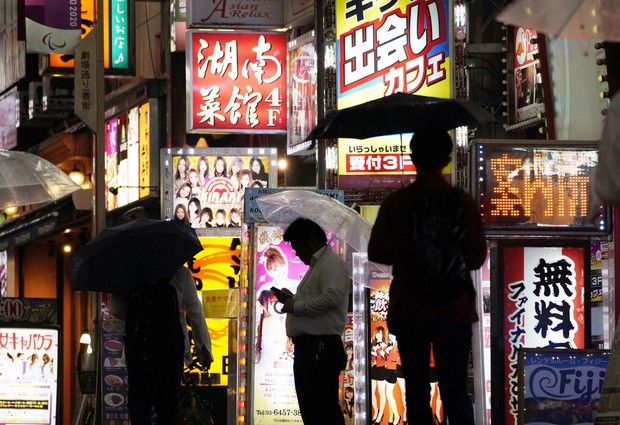TOKYO :The guidelines on such establishments as so-called host clubs where women pay to talk to male employees over drinks and snacks come as new infections in Tokyo are being traced to such places. The new rules were also made public before nightclubs and similar entertainment establishments reopen from June 19.
Operators of nightlife establishments will have to keep a record of their customers’ names and contact information and ensure social distancing rules as part of measures to contain the spread of the coronavirus, according to guidelines released by the government on Saturday.
Economy minister Yasutoshi Nishimura urged the businesses to reopen by taking proper countermeasures against COVID-19. “It’s an effort to protect the lives of employees and customers,” he told a press conference.
Nishimura made the guidelines public as the government is trying to strike a balance between reopening businesses and preventing a second wave of infections, with some of the recent new infections being traced to nightlife establishments.
Following a downward trend in the number of new COVID-19 cases, the state of emergency declaration was fully lifted on May 25. But new cases have increased to double digits in June.
Tokyo saw 24 new cases of COVID-19 infections Saturday, with four cases from nightlife spots in the Shinjuku entertainment district, bringing the total for the capital to 5,497.
The government asked the operators of nightclubs and similar establishments to list customers’ names and contact information hoping it would make it easier to trace infection routes. Other measures in the guidelines included maintaining a distance of at least 1 meter and implementing the use of face masks or face shields.
Nightlife venues such as host clubs and hostess bars are being asked to ensure their staff members refrain from singing and dancing beside their customers.
As for live music venues, high-fives with the audience are to be avoided, while nightclubs are urged to adjust the volume of music to the minimum level to prevent customers from talking loudly and thus protect them against catching droplets in face-to-face socializing.
But challenges remain on the implementation of the guidelines, compiled by the three sectors, as obtaining customers’ contact information will be left up to the establishments, and there is also a risk that customers could give false information.


![[商品価格に関しましては、リンクが作成された時点と現時点で情報が変更されている場合がございます。] [商品価格に関しましては、リンクが作成された時点と現時点で情報が変更されている場合がございます。]](https://hbb.afl.rakuten.co.jp/hgb/1c051d82.b656268f.1c051d83.9fc7a27a/?me_id=1352389&item_id=10000138&m=https%3A%2F%2Fthumbnail.image.rakuten.co.jp%2F%400_mall%2Fdelishop%2Fcabinet%2Fb1ycxkz50b%2Fimgrc0075303333.jpg%3F_ex%3D80x80&pc=https%3A%2F%2Fthumbnail.image.rakuten.co.jp%2F%400_mall%2Fdelishop%2Fcabinet%2Fb1ycxkz50b%2Fimgrc0075303333.jpg%3F_ex%3D240x240&s=240x240&t=picttext)


